Sash has been talking about a book she’s reading called, “The Power of Now” written by Eckhart Tolle, a German guy who lived on a park bench for two years before finally identifying a war he had been having with himself.
The book has sold over 3 million copies just in the USA alone. You’d think with that many people learning how to let go of their internal conflicts and embrace how good things are in this moment, there would be more peace in this world.
But perhaps, they haven’t camped in the desert.
Since I was a kid growing up in San Diego, my parents would pack the Chevy van with camping gear and head out to BLM lands in the Colorado Desert of California for camping over 3-day weekends. This was the 1970s when we didn’t have Internet, or even Pocket Football. It was just sitting in camp chairs being bored while my folks rolled up joints and drank beer. The only way I could entertain myself was take lonesome walks miles away from camp through washes and canyons and investigate rusted chunks of implements that laid strewn across the desert floor.
Today, I do the same thing.
Even though I now camp in places where I can get my laptop and cellphone online, I find that leaving behind such menaces of sensory overload and humanity deprivation in exchange for 1970s-style desert meandering helps reconnect me to the Earth.
I think that’s what I had lost over the decades.
Just a week prior to arrival at this BLM area on the southern border of Joshua Tree National Park, a massive storm caused flash flooding that closed down roads leading into the Park. As I walked across the desert slope where we camped, I found numerous rusted chunks of metal ranging from cans to can openers and hub caps and bottle caps. Somehow, the floods unearthed a graveyard of junk that had been left behind over the decades, and now basked under the warmth of the California sun.
I spotted a chunk of dark-brown rusted metal half-uncovered from the sand, and my brain became intrigued on what it might be. I approached and looked. It looked to be a can of some sort. It was not a beer can, nor a can that once held beans or vegetables. The top had a slot cut through it. My brain wondered what it had been used for. At this point, only the can held the secret to its past.
But for that moment, there was only the two of us, me a desert wanderer, and this old can, a forgotten resident of unwanted land. For only a minute, maybe less, we interacted together. Our spirits converged. I marveled at its persistence. It felt its first touch of a human hand in who knows how many years. My brain gave all of its energy to this piece of metal and saved nothing for the myriad of troubles that human beings like me are plagued with.
I was in the now.
It’s difficult to shut off the past and the future when you’re surrounded by people. When you’re sitting in freeway traffic, stuck in a crowded elevator, waiting in line at a Wal-Mart check out aisle, there’s always madness tugging at your synapses. Yet out here in the desert, there’s this sense of isolation. It’s feels timeless, as if time itself does not exist. I see rocks arranged in a circle that someone had burned a campfire in maybe ten, maybe twenty years ago. Yet, it’s still there.
The now is timeless too.
It has to be timeless in order to be now.
It just keeps going on as “right now” and never ends. Maybe that’s what I discovered so many decades ago when I was a kid in the 1970s camping in the desert. I could just wander away from camp and find someplace where I felt a connection come over me, and then just sit there and let my senses open up. I thought nothing of what happened five seconds ago, and nothing of what I might discover five seconds next. I just sat there and observed, smelled, felt, and heard. Then, I felt good to just be.
Maybe Eckhart Tolle’s park bench was a profound perspective to observe himself and his world around. But, I wonder how obvious living in the now would have been had he just sat down with a rusted old can in the middle of the desert.

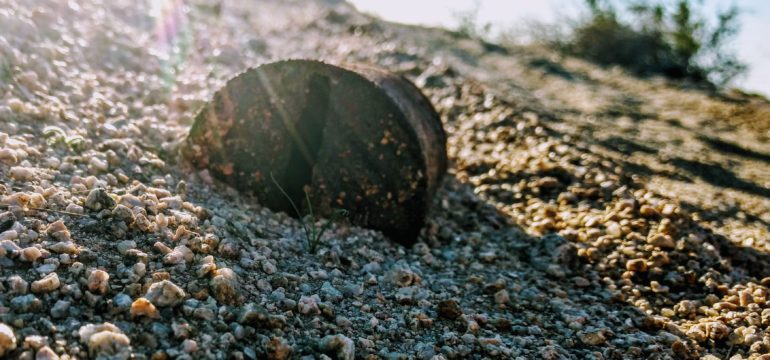
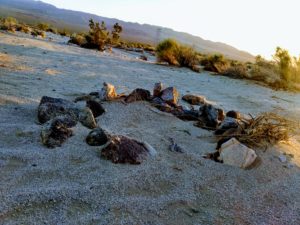
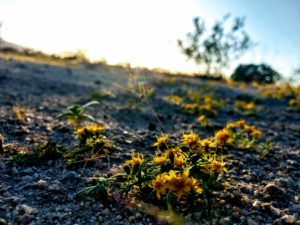
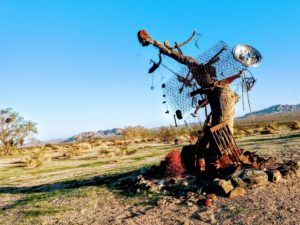
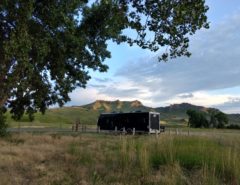
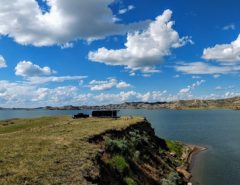
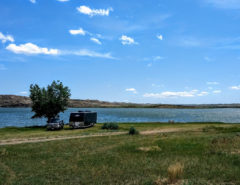
Leave a Reply